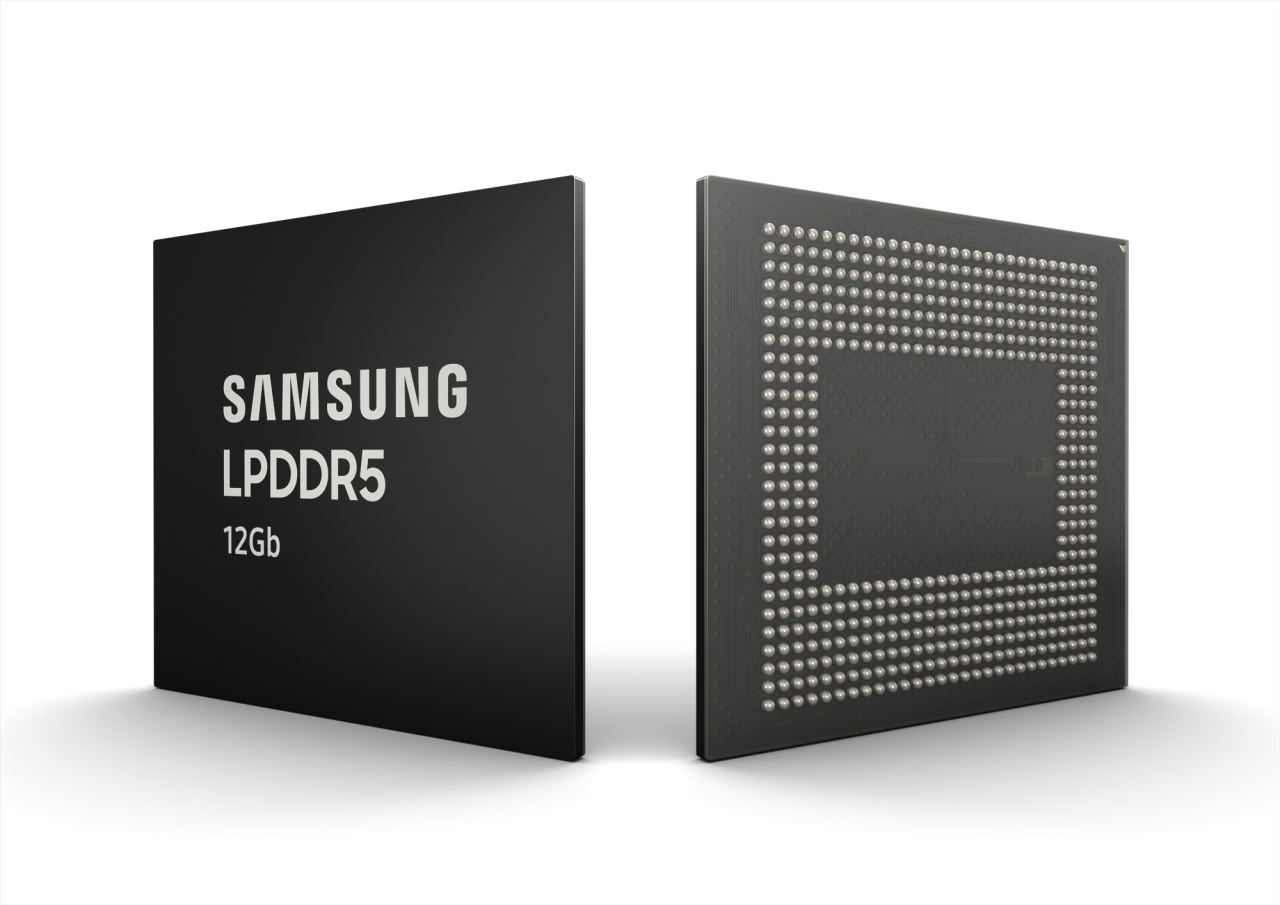Samsung Electronics on Thursday announced it was starting the mass production of the world’s fastest mobile DRAM chips for 5G-enabled smartphones, amid prolonging tensions between South Korea and Japan over export restrictions.
 |
(Samsung Electronics) |
Samsung has embarked on mass producing 10-nanometer-class 12-gigabit low-power DDR5, featuring the fastest data processing for mobile devices -- 1.3 times faster than previous mobile memory chips.
The Korean tech giant is also planning to start mass producing 12-gigabyte versions of the same mobile memory packages later this month, each combining eight of the 12Gb chips, in line with growing demand for higher smartphone performance and capacity from premium smartphone manufacturers, the tech giant said.
When made into a 12GB package, the LPDDR5 is able to transfer 44GB of data, or about 12 full-HD movies, in a second.
In order to manage production capacity with more flexibility, Samsung is considering transferring the 12Gb LPDDR5 production to its Pyeongtaek campus starting next year, depending on demand from global customers.
The announcement comes amid the ongoing trade dispute with Japan, which is viewed as the country’s intention of containing Korea’s growing power in the global semiconductor market. Starting July 4, Japan said it would scrutinize exports of three key materials for manufacturing semiconductors and displays to Korean companies. Such scrutiny could delay on-time shipments of high-computing chips for global tech companies like Amazon, Google, Apple and other smartphone makers.
Samsung’s latest announcement showed its determination not to be swayed by external issues and focus on internal timeline set for advanced memory chips down the road.
“The company’s production schedules are subject to no change so far,” said a Samsung official. “But we do have a sense of crisis that the issue could make it harder for Samsung to keep its competitive edge if not addressed well.”
Following its introduction of the 12Gb LPDDR5 mobile DRAM, Samsung plans to also develop a 16Gb LPDDR5 next year, to solidify its competitive edge in the global memory market.
By Song Su-hyun (
song@heraldcorp.com)



![[Today’s K-pop] Blackpink’s Jennie, Lisa invited to Coachella as solo acts](http://res.heraldm.com/phpwas/restmb_idxmake.php?idx=644&simg=/content/image/2024/11/21/20241121050099_0.jpg)




